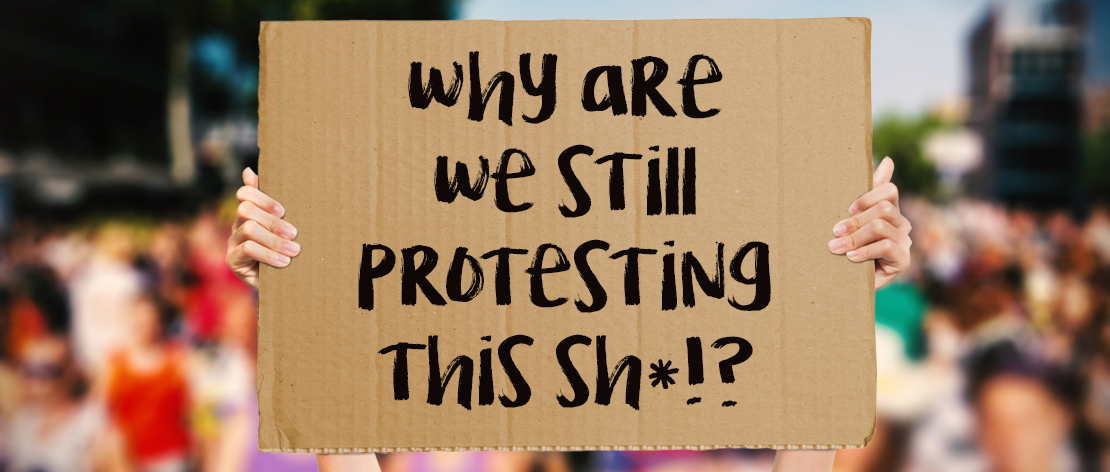We spoke to Jess Tomlin from the MATCH Fund about what the organization does to support women and girls, and what we can do to help. Read on to make a difference this International Women’s Day and beyond.
Can you talk a bit about the MATCH Fund and what it does?
The MATCH Fund is an international women’s fund (the only one in Canada) supporting innovative solutions led by women, girls, and trans people at the grassroots. We’re committed to sharing their stories as they dismantle barriers, challenge perceptions, and find solutions to the world’s biggest problems.
We’ve partnered with a variety of grassroots organizations over the years, both girls and women who want to make a difference in their community. Some examples include: 12-year-old girls high up in the mountains of Nepal who have formed clubs to refuse marriage and stay in school; girls in Kenya who are boxing in the slums of Nairobi; tech labs for girls in India; and an underground network of LGBT folks in Kampala who fight for the right to be themselves in an extremely homophobic society.
Why is this year’s IWD particularly notable?
On January 21, women across all seven continents marched together to demand their rights and freedoms. Throughout my career, I have long said that International Women’s Day needs to be more than just one day a year. Finally, we’re seeing that shift. I have never seen such momentum and such potential for widespread change.
Given the current political climate and all of the marches happening across the globe, this year’s IWD is destined to be one of the biggest yet. More than ever, March 8th will be a reminder of who has come before us and what work still needs to be done.
Where did the inspiration for this year’s campaign come from?
This year’s campaign was inspired by the women’s marches and the electric energy that’s come from men and women’s frustration that we’re still fighting that same sh*! we’ve been fighting for years.
To really drive that idea home, The MATCH Fund developed the Protest Quiz for International Women’s Day. We’re challenging Canadians to take the quiz to see if they can guess if a protest or sign is from the past or the present. It was created to remind Canadians that standing up for women’s rights is a marathon, not a sprint and that challenging the status quo is something we do decade on decade, building on the successes and demands of the women who’ve come before us. And it is a call-to-action to keep fighting!
What are some of the most poignant signs for you from the Women’s marches this year?
The most poignant signs are the ones that use humour to share a message of collective anger. When the stakes are down, women use everything at their disposal to drive change”and we can’t forget the importance of keeping our sense of humour. In fact, comic relief and wit often make people outside the choir pay attention or take notice in ways they would never have before. That’s the beauty of sharp contrasts. Some of my favourite signs were: This is so bad that even the introverts are here, we shall overcomb, or Melania, blink twice if you need help.
What are some things you think Canadian women would be surprised to hear about women’s rights around the world?
There are grave injustices that are just not on our radar as Canadians. Did you know that women risk being jailed for up to 40 years for a miscarriage in El Salvador? Women around the world can be arrested for the most mundane things: driving a car, leaving the house without permission, or wearing pants. These things would be unthinkable in Canada.
And here are some statistics that stop me in my tracks. Every single year, 14 million girls will be married as children and an estimated 3 million girls risk undergoing female genital mutilation. And 130 million girls around the world are denied an education”just because they are girls.
What are some ways Canadians can get involved?
What we don’t talk about enough is getting money into the hands of women leaders on the ground. Of all of Canada’s international aid, only $1.7 million gets to the women making a change at the grassroots level. That’s only 0.03% of Canada’s aid.
Those numbers are troubling, but we can’t just look to the government. We have to look at ourselves, too. Only 8% of individual Canadian giving goes outside of our borders. And of that, most is directed to disaster relief. We can imagine that very little trickles down to the women who are innovating every day for change in their own communities.
Canada has a big reputation to live up to. This is a critical moment where women and girls around the world need our support more than ever. Canadians must vote for global women’s rights with our dollars.
Canadians can also get involved by taking The MATCH Fund’s Protest Quiz and sharing it online with family and friends. Learn more about The MATCH Fund and how they support grassroots women’s rights organizations around the world at www.matchinternational.org.











